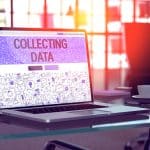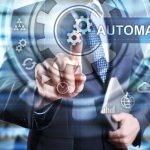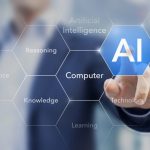How web scraping has gone from niche to mainstream [Q&A]

Web scraping -- collecting data from websites -- has been around almost as long as the internet has existed. But recently it's gone from a little-known niche to a serious activity, using automation to collect large amounts of information.
We spoke to Julius Černiauskas, CEO of data acquisition company Oxylabs to find out more about web scraping and how it has evolved.
Why organizations must move to a cloud-based infrastructure [Q&A]

The past couple of years have led to lots of new demands on IT and many businesses have turned to the cloud in order to meet them.
Whilst the initial assumption may have been that these changes would be temporary, much of the shift in working patterns looks like becoming permanent. We spoke to Alkira's CEO Amir Khan to find out more about what this means for businesses as they gear up for remote work on a long-term basis.
Why we need to take the threat of cyberwarfare seriously [Q&A]

The age of what might be called the hobbyist hacker is long gone, replaced by a much more serious trend towards organized crime and nation states being behind hacking and cyberattacks.
In an era where data can be weaponized, both businesses and governments need to take the threat seriously. It's important for security teams to understand how attacks are carried out and the motivations that lie behind them.
Are cybersecurity teams underusing female talent? [Q&A]

It's reckoned that women make up only around a quarter of the cybersecurity workforce. And yet the women who do work in the sector are generally better qualified than their male counterparts.
Despite this there is still a clear divide across the technology sector generally, in both treatment and pay. So, is the cybersecurity sector under-utilizing female talent? And what advantages can a more gender diverse workforce deliver?
Could democratization of AI help prevent the Great Resignation? [Q&A]

The Great Resignation has hit the IT industry harder than most, with recent figures from Gartner suggesting only 29 percent of global IT workers have a ‘high intent’ to stay in their current role.
AI is sometimes blamed for reducing the number of jobs, but could a democratization of AI in the workplace help retain staff by giving them the skills to be more involved in the flow of work?
Why and how organizations are modernizing their container deployments at the edge [Q&A]

Edge computing is aimed at bringing computing power closer to the source of data, such as IoT devices. It's increasingly being seen as an alternative to traditional data center and cloud models.
Stewart McGrath is the CEO at Section, a global Edge as a Service (EaaS) provider that helps organizations improve availability of their containerized application workloads in the cloud. We spoke to him to find out how and why companies are moving applications out to the edge.
Chatbots -- are they more artificial than intelligent? [Q&A]

When you contact a large organization it's increasingly likely that, in the first instance at least, you'll find yourself dealing with a chatbot rather than a real person.
Most of these are based on some form of AI, but are they really all that clever? Deon Nicholas, CEO and co-founder of Forethought, doesn't think so. We spoke to him to find out more and discuss whether there might be a better solution.
The challenges of fully remote work environments [Q&A]

Prior to the pandemic, only six percent of employees worked remotely. In tech, and specifically cyber, though that number is considerably higher.
But what benefits and challenges do high levels of remote working present? We spoke to DNSFilter CEO and co-founder, Ken Carnesi to find out.
Why automation is the future of incident response [Q&A]

A security breach can lead to serious reputational and legal issues for enterprises. The speed and effectiveness with which they are able to respond to incidents is therefore crucial.
Larry Gagnon, senior vice president, global incident response at eSentire, believes that the way to address this is by greater automation incident response. We talked to him to find out more.
How data can help overcome the challenges of hybrid working [Q&A]

Of the many challenges thrown up by the pandemic, the switch to remote working has perhaps been one of the most significant.
How have organizations coped with this change, what will the long term effects be and what's the role of data in making hybrid work possible? We spoke to Mark Devereux, CTPO of Scalable Software, to find out.
Automating networks for whatever comes next [Q&A]

Digital transformation and modernization of IT is sweeping across many organizations at the moment. But one aspect that's sometimes neglected is their impact on networks.
How can enterprises scale their networks to cope with change and what part can automation play in the mix? We spoke to Ernest Lefner, chief product officer at Gluware, and co-founder and former co-chairman of ONUG (Open Network User Group), to find out.
How artificial intelligence and machine learning are changing the development landscape [Q&A]

It's an increasingly rare application these days that doesn’t claim to incorporate some form of artificial intelligence or machine learning capability.
But while this may be great from a marketing standpoint it does pose a challenge for developers. We spoke to Luis Ceze, CEO and co-founder of OctoML, to find out more.
The role of encrypted traffic analysis for threat detection [Q&A]

Everyone is striving to make their systems more secure and in many cases that means adopting encryption in order to protect data.
But the use of encrypted traffic over networks presents a headache for security teams as malicious content can be harder to detect. We spoke to Thomas Pore, director of security products at Live Action, to find out more about the problem and how it can be addressed.
What is needed to make digital transformation work? [Q&A]

Digital transformation is a topic that's been in the air for more than just a few years now, but the impact of the pandemic and the need for businesses to adapt has rapidly brought it back to the forefront.
It's also no longer just about IT. Digital transformation is an enterprise-wide endeavor, connecting and affecting all business units and requires a shift in mindset to take full advantage of the opportunities it offers.
What is unified observability and why is it important? [Q&A]

There has been much discussion around observability in the past few months. With the adoption of hybrid work models and cloud systems, IT leaders have quickly realized the business and security value of creating transparency within their existing tech infrastructure.
Digital experience company Riverbed has announced a business move towards a market it's calling 'unified observability'. The company's vice-president Mike Marks spoke to us about the unified observability concept, why it's integral to IT decision-makers' strategies and offers some thoughts on how enterprises can begin integrating it within their current operations.
Recent Headlines
Most Commented Stories
© 1998-2025 BetaNews, Inc. All Rights Reserved. About Us - Privacy Policy - Cookie Policy - Sitemap.